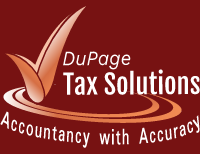
Tax and Accounting Services
About DuPage Tax Solutions
DuPage Tax Solutions is located in Naperville, IL. Our clients are mostly residents and small businesses within the Chicago metropolitan area – DuPage, Cook, Will, and Lake counties. Our remote work capabilities allowed us to extend our services nationwide. Today, we pride ourselves in having clients from all 50 states. Our virtual services are fast, easy, and convenient. Clients submit and review documents electronically through our secured online portal.
Car Expenses: How do I Deduct them?
A Guide for Self-Employed Professionals and Freelancers on Deducting Car Expenses for Business Use

If you’re self-employed or a freelancer and use your car for business purposes, you may be eligible to deduct car expenses on your taxes. Understanding the deduction options available can help you save money while staying compliant with IRS regulations. Below, we outline the key methods for deducting your car expenses and provide tips for choosing the best approach for your situation.
Home » Car Expenses: How Do I Deduct Them?
Deduction Options for Car Expenses
There are two primary methods to deduct expenses for your vehicle:
- Actual Car Expenses
- Standard Mileage Rate
You must choose one method, so let’s break down the details of each.
Actual Car Expenses Deduction
With this method, you deduct the business portion of your actual car expenses. Specifically, this option allows you to include costs directly tied to operating your vehicle for business purposes.
Examples of deductible actual expenses include:
- Gas and oil
- Repairs and maintenance
- Registration fees
- Licenses
- Insurance
- Depreciation (or lease payments)
- Tires
Additionally, parking fees and tolls are separately deductible regardless of which method you choose. However, note that monthly payments or down payments for a car loan are not deductible.
Standard Mileage Rate Deduction
The standard mileage rate simplifies the process by allowing you to deduct a fixed amount per mile driven for business purposes. The IRS updates the mileage rate annually, so it’s important to use the correct rate for the applicable tax year.
The mileage rate for 2024 is 67 cents per mile, up from 65.5 for 2023.
Important Note:
- If you own the car, you must use the standard mileage rate in the first year you use the vehicle for business purposes. After that, you can choose either the standard mileage rate or actual car expenses in subsequent years.
- If you lease the car, you must stick with the standard mileage rate for the entire lease period (including any renewals) if you choose it initially.

Keep Record of Your Expenses
Accurate recordkeeping is essential when deducting car expenses. To start, track all costs related to the business use of your vehicle, including fuel, repairs, insurance, and mileage. For example, maintaining a detailed mileage log with dates, destinations, and purposes of each trip can support your deductions if audited.
In addition, keep receipts for expenses like parking fees and tolls. By organizing these records digitally, you can easily access them when filing your taxes or comparing deduction methods. Ultimately, thorough documentation ensures you claim the maximum deduction while staying compliant with IRS requirements.
Choosing Between Actual Car Expenses and the Standard Mileage Rate Deduction
Wondering which method to use? It depends on your unique situation. Calculate both options to see which results in a larger deduction. Many self-employed individuals prefer the standard mileage rate because it’s easier to calculate and requires less recordkeeping. However, if your actual vehicle costs are significantly higher, that method may save you more on taxes.
You May Also Like These


Top Tax Mistakes Business Owners Make

Cash Flow Made Simple

Home Office Tax Rules to Know
Ready to Take Control of Your Finances?
Contact us today for personalized tax, accounting, and advisory services tailored to your needs. Let’s work together to achieve your financial goals!

Contact Info
Ph. (630) 909 9700
Email: DPTax@DP-Tax.com
Mail address:
1552 Illinois Rte 59 #1037
Naperville, IL 60564
Business Hours
Mon: 11 am – 7 pm
Tue: 11 am – 7 pm
Wed: 11 am – 7 pm
Thu: 11 am – 7 pm
Fri: 11 am – 7 pm
Sat: 12 pm – 5 pm
Sun: CLOSED
Helpful Links
© 2024 DuPage Tax Solutions | Site Map | Privacy Policy | Disclaimer
